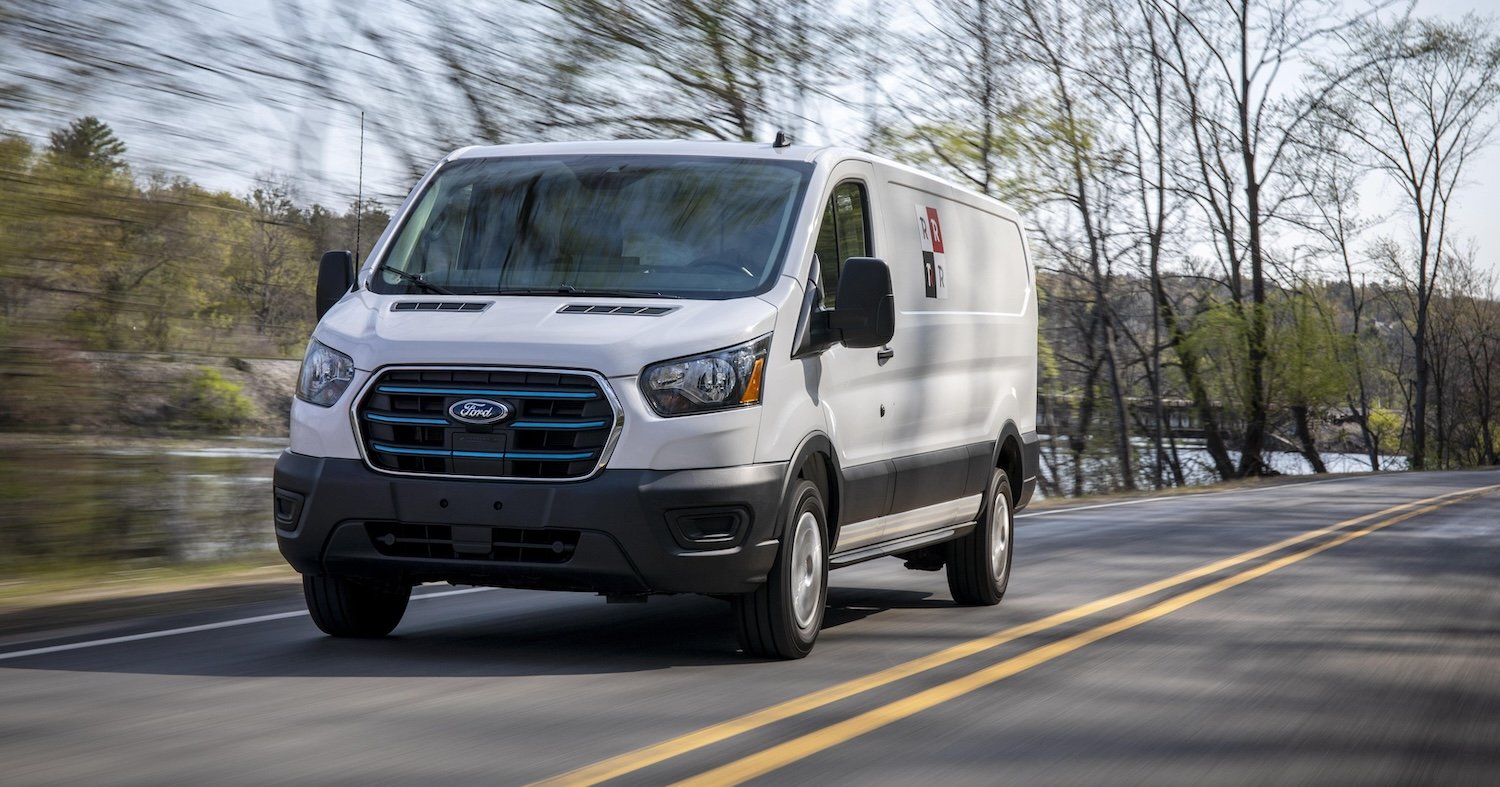Performance and Efficiency
The 2026 Ford E-Transit Cargo Van delivers exceptional performance and efficiency, making it an ideal choice for businesses seeking sustainable and cost-effective transportation.
The electric powertrain provides ample acceleration, allowing the van to reach highway speeds swiftly. Its top speed is comparable to conventional gasoline-powered vans, ensuring efficient and timely deliveries. Additionally, the E-Transit Cargo Van offers a towing capacity that meets the demands of various cargo hauling tasks.
Energy Consumption and Operating Costs
The E-Transit Cargo Van’s energy consumption is significantly lower than its gasoline counterparts, resulting in substantial cost savings. Its advanced battery technology and efficient electric motor optimize energy usage, reducing operating expenses. The van’s energy consumption is measured in kilowatt-hours per 100 kilometers (kWh/100km), which is a standard metric for electric vehicles.
Target Audience and Applications

The 2026 Ford E-Transit Cargo Van is designed to meet the needs of businesses and organizations looking for an efficient and versatile electric commercial vehicle.
Its target audience includes:
- Delivery and logistics companies
- E-commerce businesses
- Construction companies
- Government agencies
- Non-profit organizations
Applications
The van is well-suited for various applications, including:
- Last-mile delivery
- E-commerce deliveries
- Tool and equipment transportation
- Passenger transportation
- Mobile workshops
For example, delivery and logistics companies can use the E-Transit Cargo Van to deliver packages and goods to customers. E-commerce businesses can use it for last-mile delivery and home deliveries. Construction companies can use it to transport tools, equipment, and materials to job sites.
Pricing and Competition
The 2026 Ford E-Transit Cargo Van is priced competitively in the electric cargo van market. It offers a compelling value proposition with its combination of performance, efficiency, and advanced technology.
Competitive Landscape
The competitive landscape for electric cargo vans is growing rapidly, with several major automakers entering the market. Key competitors include the Rivian EDV, Bollinger B2, and Canoo MPDV.
| Vehicle | Base Price |
|---|---|
| 2026 Ford E-Transit Cargo Van | $45,000 |
| Rivian EDV | $75,000 |
| Bollinger B2 | $125,000 |
| Canoo MPDV | $60,000 |
The Ford E-Transit Cargo Van offers several competitive advantages, including its extensive dealer network, proven reliability, and access to Ford’s Pro Power Onboard system, which provides mobile power for tools and equipment.
Environmental Impact
The 2026 Ford E-Transit Cargo Van is an environmentally friendly vehicle that offers significant benefits over traditional gasoline-powered vans.
Electric vehicles like the E-Transit Cargo Van produce zero tailpipe emissions, reducing air pollution and contributing to cleaner air. Additionally, the van’s electric powertrain is more efficient than gasoline engines, resulting in lower operating costs and reduced greenhouse gas emissions.
Reduced Emissions
The E-Transit Cargo Van’s electric powertrain eliminates tailpipe emissions, which contribute to air pollution and climate change. According to the Environmental Protection Agency (EPA), transportation is the largest source of greenhouse gas emissions in the United States, and electric vehicles play a crucial role in reducing these emissions.
Lower Operating Costs
Electric vehicles have lower operating costs compared to gasoline-powered vehicles due to their reduced energy consumption. Electricity is typically cheaper than gasoline, and electric vehicles require less maintenance than gasoline vehicles because they have fewer moving parts.
Contribution to Sustainable Transportation
The E-Transit Cargo Van contributes to sustainable transportation by reducing emissions, lowering operating costs, and promoting the adoption of electric vehicles. As more businesses and consumers switch to electric vehicles, the overall environmental impact of transportation will be reduced.
Future Prospects

The 2026 Ford E-Transit Cargo Van represents a significant step forward in the evolution of electric commercial vehicles. Its advanced technology, spacious interior, and versatile capabilities position it well for a bright future.
With the growing demand for sustainable transportation solutions, the E-Transit Cargo Van is poised to play a major role in the electrification of commercial fleets. Ford’s commitment to electric vehicle development suggests that future models will continue to push the boundaries of performance and efficiency.
Potential Updates and Upgrades
As the E-Transit Cargo Van matures, we can expect to see ongoing updates and upgrades. These may include:
– Extended battery range for increased driving distance on a single charge.
– Improved charging technology for faster and more convenient charging.
– Enhanced safety features to ensure the well-being of drivers and passengers.
– Advanced driver-assist systems to reduce fatigue and improve driving experience.
– New interior amenities to enhance comfort and convenience for occupants.
Role in the Electric Commercial Vehicle Market
The E-Transit Cargo Van is well-positioned to capitalize on the growing market for electric commercial vehicles. Its spacious cargo capacity, versatility, and low operating costs make it an attractive option for businesses looking to reduce their environmental impact and save on fuel expenses.
As more companies adopt electric vehicles, the E-Transit Cargo Van is likely to become a staple in commercial fleets. Its proven reliability and Ford’s commitment to customer support will further strengthen its position in the market.
Common Queries
When is the official release date for the 2026 Ford E-Transit Cargo Van?
The official release date for the 2026 Ford E-Transit Cargo Van is expected to be in the second half of 2025.
What is the estimated price range for the 2026 Ford E-Transit Cargo Van?
Ford has not yet released official pricing information for the 2026 E-Transit Cargo Van. However, industry experts estimate the starting price to be around $45,000.
What are the key differences between the 2026 Ford E-Transit Cargo Van and its competitors?
The 2026 Ford E-Transit Cargo Van stands out from its competitors with its superior battery capacity, longer range, advanced driver-assist systems, and spacious cargo area.
What are the environmental benefits of the 2026 Ford E-Transit Cargo Van?
The E-Transit Cargo Van produces zero tailpipe emissions, significantly reducing its environmental impact compared to traditional gasoline-powered cargo vans.
Is the 2026 Ford E-Transit Cargo Van available for pre-order?
Ford has not yet announced the availability of pre-orders for the 2026 E-Transit Cargo Van. Stay tuned for updates from Ford’s official website.
